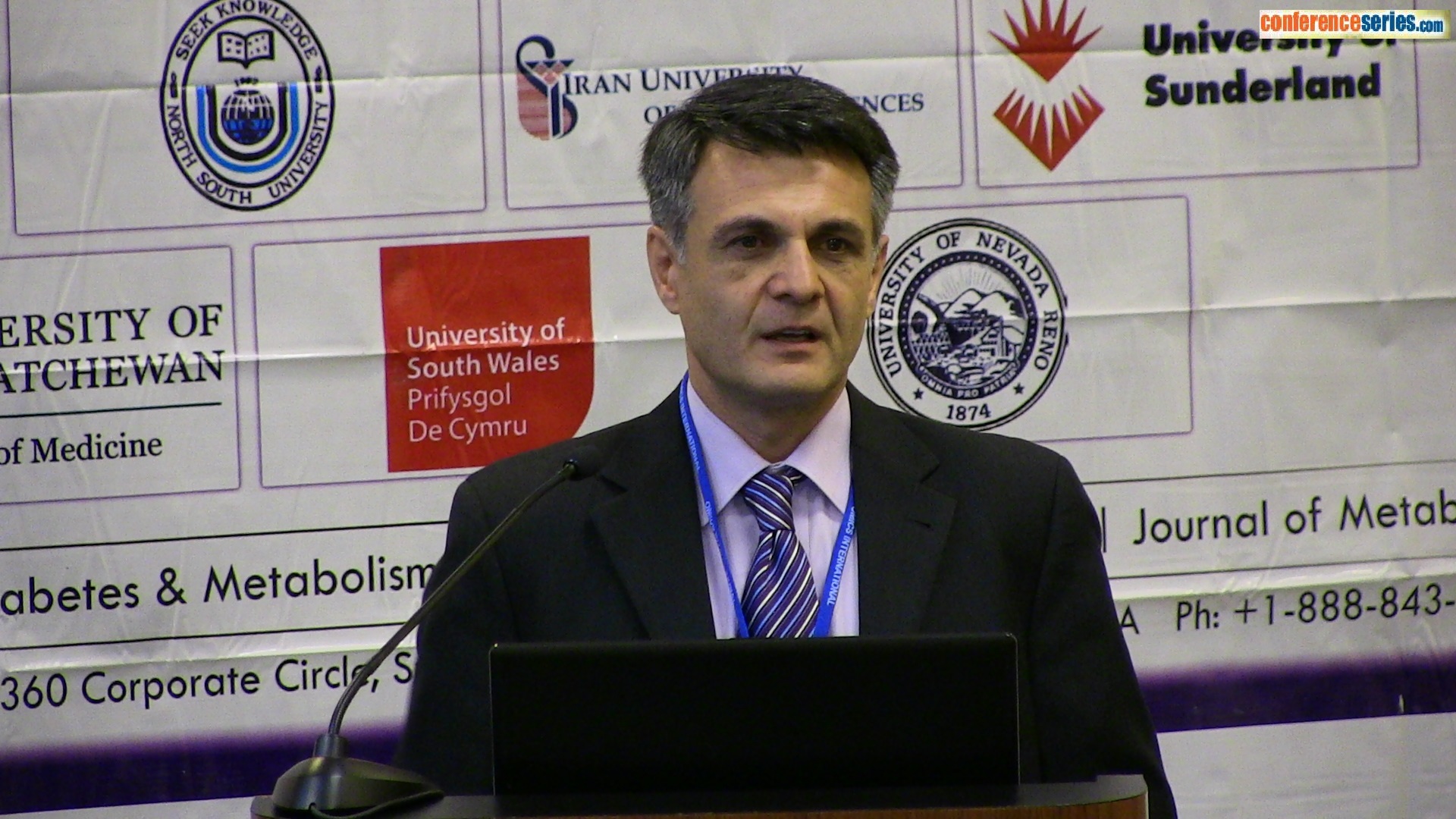
Alireza Jahan-Mihan
University of North Florida, USA
Title: The role of dietary proteins in maternal diet in risk of development of glucose intolerance and diabetes mellitus in offspring
Biography
Biography: Alireza Jahan-Mihan
Abstract
The overarching role of impaired insulin resistance and central obesity has been suggested. The role of dietary proteins in maternal diet in health outcome of the offspring has been examined. Offspring born to low protein fed dams have impaired glucose tolerance at 15 months of age and diabetes at 17 months of age. In another study, pregnant gilts were fed either high protein/low carbohydrate (HP-LC) or a low protein/high carbohydrate diet or a standard diet. HP-LC fetuses had intrauterine growth restriction (IUGR) and asymmetrical growth of fetuses within the same litter. Offspring born to twin-pregnant sheep fed a low energy, low protein diet in late gestation developed insulin resistance compared with those fed a normal diet. Interestingly, the lambs’ post-natal high CHO, high fat diet exaggerated the adverse effect of low protein low calorie maternal diet fed during late gestation as evidenced by higher glucose AUC. The role of low protein diet fed during pregnancy in aging-related development of dysfunction of insulin metabolism has also been studied. The results suggest that a low protein maternal diet fed during pregnancy has a negative impact on aging-associated glucose-stimulated insulin secretion loss in rats; therefore, authors propose that developmental programming is a major factor in aging-related development of dysfunction of insulin metabolism. Impaired glucose tolerance was also found in adult femalesand their insulin responseto an oral glucose preload was low if they were born to rat dams fed a low protein diet during gestation but not males. In contrast, male but not female Wistar rats born to dams fed low protein diets were more hyperinsulinemic and insulin resistant at 20 weeks of age.Moreover, protein source in a nutritionally adequate diet during gestation and lactation influenced glucose metabolism in offspring of rats in a sex-dependent manner. Dams’ soy protein-based diet resulted in higher fasting glucose, glucose response to glucose preloads and the HOMA-IR index, in male offspring but not in females. In conclusion, both protein content and protein source fed during development influence the risk of glucose intolerance and diabetes in offspring in a sex-dependent manner.
Speaker Presentations
Speaker PDFs
Speaker PPTs Click Here


